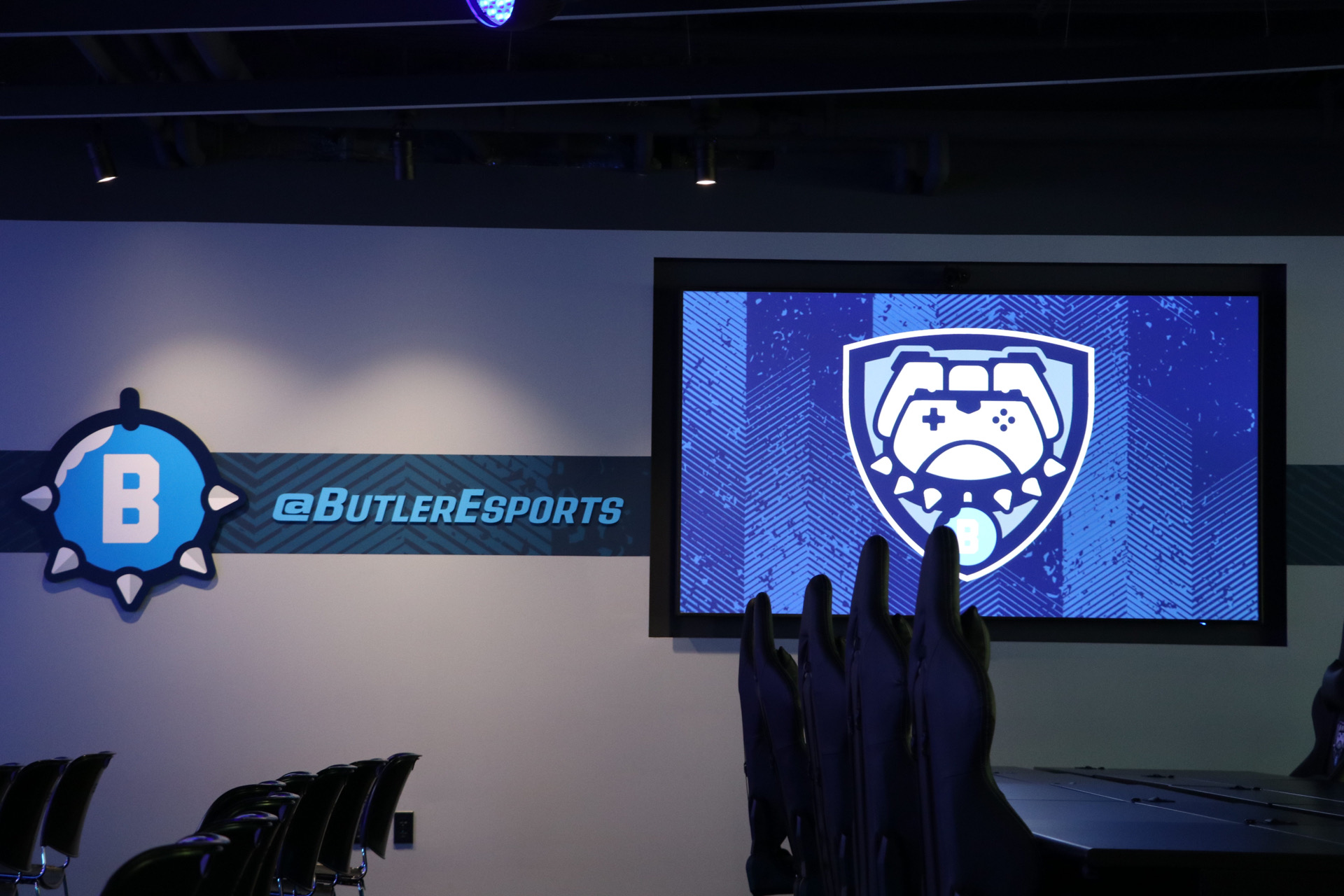The Butler Esports Park opened in 2022 and has allowed for the club and program to expand. Photo by Natalie Goo.
TREVOR FOX | SPORTS REPORTER | trfox@butler.edu
The esports industry has been on an upwards trend within the last few years, and Butler’s program is no exception.
The Butler Esports Club, founded in 2017, was rewarded with the Esports Park last fall, located on Sunset Avenue. According to Nathan Duke, manager of esports programs and facilities, the club has expanded exponentially since its inception and now has over 500 members within the Butler Esports Discord.
Esports teams
The club team has grown to be very competitive and even competes in the Big East Conference and in the National Association of Collegiate Esports (NACE). The NACE is an electronic sports league that includes almost 700 colleges.
Butler Esports has 13 club teams and two varsity teams that compete across numerous leagues. They compete in multiple different games including Call of Duty, Fortnite, Overwatch and many more. The club now has roughly 120 active members and nearly 75 student athletes.
Butler’s esports program is an established one compared to other schools, and it is a program that has a reputation to uphold. Although it has just six years under its belt, the program has some pretty monumental accolades. One of them being that the program has two Big East titles to its name — one in League of Legends and the other in Rocket League.
The esports program is looking to build on its success in the past to try and improve on its future. Noah Blacha, a senior sports media major and vice president of operations for the club, noted that it was an eventful summer for Butler Esports as an intern.
“So, a lot of our job this summer was kind of reflecting on what went well, what didn’t from last year,” Blacha said. “… for me, it was kind of rewriting all of the important documents and then coming up with ideas to enhance the student experience.”
Blacha is also an undergraduate assistant for operations on the program side of esports while in his final year at Butler. Although a senior, Blacha has only been a member of the club for two years.
“I didn’t know we had an esports program,” Blacha said. “[Esports] used to be over in the [Esports and Gaming Center] over by Plum, and so for the first two years of college I had no idea like this even existed.”
Blacha’s story is just one example of how much the program has grown in just a short amount of time.
Although Butler Esports has grown rapidly, it doesn’t seem to be slowing down anytime soon. Blacha is confident that the program will continue to develop.
“I know this year we have a lot of incoming freshmen who are interested in esports, which is cool and as it becomes more normalized, I feel like you’re just going to see it grow exponentially,” Blacha said.
Ethan Butler, a sophomore creative media and entertainment major, is a member of the esports team. He said he had an active summer preparing for the next season.
“I hold myself to a high standard of play,” Butler said. “Over the summer I practiced and played both on my own and with some of my teammates to make sure that [I was] prepared for the upcoming season. I’m always watching the top levels of play to pick up whatever advantages and techniques I can.”
From club to class
The program not only has the club, but now has esport classes that can be taken for academic credit and even has an Esports Communication minor. Lee Farquhar, the academic advisor for Butler Esports, said that the curriculum involves many branches of the industry.
In the introduction class alone, Sports Media 140, Farquhar said his students learn what it means to be a fan and participant in esports, what it is like working in the industry and the various careers that fit under the esports umbrella. In another course, Sports Media 325, Esports Production, students get hands-on experience with equipment and work on either pre-produced items, or are able to work on actual broadcasts and streams themselves.
Farquhar said he wants to help students understand how they can make a career in esports and what makes it meaningful to participants and fans.
Butler’s academic side of esports is expanding quickly. Farquhar even alluded to the idea that the College of Communication might eventually add an esports major.
“Right now we’re looking to continue to grow the minor if demand keeps increasing as it is,” Farquhar said. “Always exploring options for either additional related minor courses, or potentially an esports major down the road.”
The esports program here at Butler is thriving competitively and academically and shows no signs of stopping anytime soon. Esports may soon be a staple in competitive sports at Butler.



